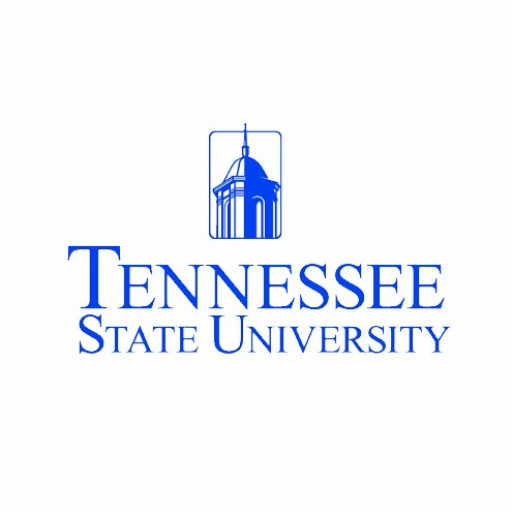Photos of university / #riceuniversity
Program Title: Bioscience and Health Policy
Description: The Bioscience and Health Policy program at Rice University offers a comprehensive interdisciplinary education designed to prepare students for impactful careers at the intersection of biomedical sciences, healthcare, and policy. This innovative program combines rigorous coursework in biology, medicine, and public health with training in policy analysis, health systems management, and ethical considerations, equipping graduates with a broad understanding of the scientific and societal aspects of healthcare. Students explore the biological foundations of human health, including molecular and cellular biology, genetics, and biotechnology, while also gaining insights into health policy development, regulatory environments, and health economics. The curriculum emphasizes critical thinking, data analysis, and effective communication skills necessary for addressing complex healthcare challenges. Through laboratory work, clinical exposure, and policy projects, students develop practical experience alongside theoretical knowledge. The program encourages multidisciplinary collaboration, fostering partnerships with medical institutions, government agencies, and industry leaders to expose students to real-world healthcare issues. Graduates of the Bioscience and Health Policy program are prepared for diverse careers in biomedical research, healthcare administration, policy analysis, advocacy, or pursuing advanced degrees in medicine, law, public health, or related fields. With access to cutting-edge research facilities and expert faculty, students are well-positioned to contribute to innovative solutions in health sciences and policy. The program’s flexible design allows students to tailor their coursework and research to their specific interests, supporting personalized educational paths. Overall, the Bioscience and Health Policy program at Rice University aims to cultivate leadership and inspire the next generation of scientists, policymakers, and healthcare professionals committed to improving health outcomes worldwide.
CORE REQUIREMENTS
Students must complete a total of 12 courses (33 credit hours) as listed below to satisfy the MSBHP degree program's Core Requirements.
Science Core Courses
Students must complete a total of 4 courses (12 credit hours) from the following. These courses give in-depth instruction in specialized areas of Bioscience and are required to obtain a broad understanding of diverse areas of cutting edge Bioscience research. *Courses marked with asterisks are offered as 300-level courses that will include graduate level writing and analysis to qualify as a 500-level graduate course.
- BIOC 524* Microbiology and Biotechnology [ 3 credit hours ]
- BIOC 525 Plant Molecular Genetics and Development [ 3 credit hours ]
- BIOC 540/CHBE 540 Metabolic Engineering [ 3 credit hours ]
- BIOC 544 Development Biology [ 3 credit hours ]
- BIOC 545 Advanced Molecular Biology and Genetics [ 3 credit hours ]
- BIOC 547 Biology and Medicine [ 3 credit hours ]
- BIOC 550 Viruses and Infectious Diseases [ 3 credit hours ]
- BIOC 560/BIOE 560 Cancer Biology [ 3 credit hours ]
- BIOC 563* Endocrinology [ 3 credit hours ]
- BIOC 570 Computation with Biological Data [ 3 credit hours ]
- BIOC 573* Immunology [ 3 credit hours ]
- BIOC 580/BIOE 580/CHBE 580 Protein Engineering [ 3 credit hours ]
- BIOC 585* Fundamentals of Cellular, Molecular, and Integrative Neuroscience [ 3 credit hours ]
Other Science Course options accepted as marked * in electives below
Cohort Courses
Students must complete the following 4 courses (9 credit hours):
- NSCI 501 Professional Master's Seminar [ required for two semesters, 1 credit hour each ]
- NSCI 511 Science Policy and Ethics [ 3 credit hours ]
- NSCI 512 Internship Project [ 1 credit hour ]
- NSCI 610/ENGI 610 Management in Science and Engineering [ 3 credit hours ]
Analytical Competency Requirement
The analytical competency requirement provides career-enhancing, marketable skills in policy analysis, economics and statistics. Students will take courses from groups A, B and C as indicated below:
A– Statistics or Data Analytics
Students must complete 1 course (3-4 credit hours) from the following:
- STAT 305 Intro to Statistics in Biosciences [ 4 credit hours ]
- STAT 385 Methods of Data Analysis [ 4 credit hours ]
- STAT 553 Biostatistics [ 3 credit hours ]
- STAT 684/CEVE 684 Environmental Risk Assessment and Human Health [ 3 credit hours ]
- MGMT 750 Strategic Considerations in Health Informatics [ 1.5 credit hours ]
B–Finance or Economics
Students must complete 1 course (3 credit hours) from the following:
- ECON 450 Economic Development [ 3 credit hours ]
- ECON 481 Health Economics [ 3 credit hours ]
- MGMT 673 Cost Analysis in Healthcare [ 1.5 credit hours ]
- MGMT 679 Cost and Quality in Health Care [ 1.5-3 credit hours ]
- MGMT 751 Economics of Healthcare Sectors [ 1.5 credit hours ]
- PH 3910* Introduction to Health Economics
C–Policy Courses
Students must complete 2 courses (minimum of 6 credit hours) from the following:
- POST 530 Shaping of Health Policy [ 3 credit hours ]
- ANTH 581 Medical Anthropology [ 3 credit hours ]
- ANTH 643 Race, Ethnicity, and Health [ 3 credit hours ]
- HEAL 580 Disparities in Health in America [ 3 credit hours ]
- MGMT 690 Healthcare Strategy [ 1.5 credit hours ]
- MGMT 691 Negotiations for Healthcare [ 1.5 credit hours ]
- MGMT 694 Interpersonal Communication in Healthcare [ 1.5 credit hours ]
THREE TO SIX MONTH INTERNSHIP
Practical experience is offered via a three to six month work immersion. The internship will be under the guidance of a host company, government agency, or non-profit organization. A summary of the internship project is required in both oral and written form as part of the Professional Master's Seminar.
ELECTIVES
To fulfill the remaining MSBHP degree program requirements, students must complete a total of 2 additional courses (6 credit hours) from the following. The electives reflect individual academic interests and career goals. Any course from the above list of Bioscience courses can be taken as an elective, provided it was not taken as a required course. In addition, the following classes qualify as elective classes:
- ANTH 581 Medical Anthropology [ 3 credit hours ]
- ANTH 643 Race Ethnicity and Health [ 3 credit hours ]
- ECON 450 World Economy and Social Development [ 3 credit hours ]
- HEAL 507 Epidemiology [ 3 credit hours ]
- HEAL 560 Planning, Evaluation of Health Promotion and Education [ 3 credit hours ]
- MGMT 623 Commercialization in Pharma [ 1.5 credit hours ]
- MGMT 633/BIOE 633 Life Science Entrepreneurship [ 1.5 credit hours ]
- MGMT 678 U.S. Healthcare Management [ 1.5 credit hours ]
- MGMT 712 Process Management and Quality Improvement [ 1.5 credit hours ]
- MGMT 738 Customer Focus in Healthcare and Service Industries: A Strategic Approach [ 1.5 credit hours ]
- MGMT 961 Business Law [ 1.5 credit hours ]
- PHIL 336 Topics in Medical Ethics [ 3 credit hours ]
- STAT 684/CEVE 684 Environmental Risk Assessment and Human Health [ 3 credit hours ]
- GS 120254* Cell and Systems Physiology
- GS 120043* Principles of Pathology
*There are other courses that may satisfy the Two Elective Courses requirement. For example, Students can choose up to two electives from UT Graduate School of Biomedical Science (GS), Informatics (HI) and/or Health Science Center (PH). See department for more details.
Note: Some of the listed courses are not offered every year, and some may also have prerequisites or require instructor permission. If student needs to take more than two 300/400 courses as part of the degree program, permission of advising faculty is required.
- Completed application (apply on-line)
- Three personal letters of recommendation - recommenders can now submit their letters on-line
- General GRE scores (use the code 6609 for Rice; do not worry about a department code)
- Official transcripts from all universities attended
- TOEFL scores (if required)
The financing studies for the Bioscience and Health Policy program at Rice University encompass a variety of funding options designed to support students throughout their academic journey. Rice University offers numerous scholarships and grants specifically tailored to students pursuing degrees in bioscience and health policy, which aim to reduce the financial burden and promote diversity within the field. These scholarships are awarded based on academic achievement, leadership qualities, and potential contributions to the field. Additionally, students have access to need-based financial aid programs that consider familial income and individual circumstances to provide appropriate assistance.
Apart from institutional scholarships, students can explore external funding opportunities such as federal grants, private scholarships, and fellowships pertinent to biosciences and health policy. The federal government provides financial aid through the Free Application for Federal Student Aid (FAFSA), which eligibility is assessed annually. Graduate students can also benefit from teaching assistantships and research assistantships, which offer stipends and tuition waivers in exchange for academic service. These positions are highly competitive but offer invaluable professional experience alongside financial support.
Rice University encourages students to seek part-time employment opportunities on or near campus to supplement their income. The university's career center provides guidance on securing suitable roles and internships that align with students' academic and career objectives. Additionally, students are encouraged to participate in research projects funded by grants from governmental and private institutions, which can sometimes include stipends or research funding.
Students are advised to carefully review the financial aid options and apply early to maximize available support. Complete transparency regarding costs associated with the program allows students to plan their finances effectively. The university’s financial services office offers counseling and personalized assistance to help students navigate the complex landscape of university funding. Overall, the financing studies for the Bioscience and Health Policy program aim to make the education accessible by providing comprehensive financial support mechanisms, fostering academic excellence, and promoting research and professional development opportunities.
The Bioscience and Health Policy program at Rice University is designed to provide students with a comprehensive understanding of the intersecting fields of biological sciences and health policy. This program aims to prepare students for careers in healthcare, biomedical research, public health, policy analysis, and administration. It emphasizes both scientific literacy and policy expertise, enabling alumni to contribute effectively to the development, implementation, and evaluation of health-related policies and innovations.
Students in this program typically engage in interdisciplinary coursework that covers molecular biology, genetics, biochemistry, and physiology, complemented by classes in health economics, policy analysis, ethics, and healthcare systems. The curriculum often features a combination of lectures, laboratory work, and policy projects to foster practical skills and critical thinking. In addition, students may have opportunities to participate in internships, research projects, and collaborations with healthcare organizations, government agencies, or policy think tanks.
The goal of the program is to produce graduates who possess both deep scientific knowledge and a strong understanding of the societal, economic, and ethical issues related to health. This dual focus prepares students to work in a variety of settings, including research institutions, healthcare companies, government agencies, and non-profit organizations. The program also encourages students to consider emerging trends such as personalized medicine, biotechnology regulation, public health preparedness, and healthcare technology innovations.
Rice University supports this program with state-of-the-art laboratories, research centers, and faculty expertise spanning biological sciences, public policy, and health systems. The program offers a trajectory for students interested in pursuing advanced degrees, such as MD, PhD, or Master’s programs in public health or health policy. Through its interdisciplinary approach, the Bioscience and Health Policy program equips students with the skills necessary to navigate and influence the rapidly evolving landscape of biomedical sciences and healthcare policy on national and global levels.








